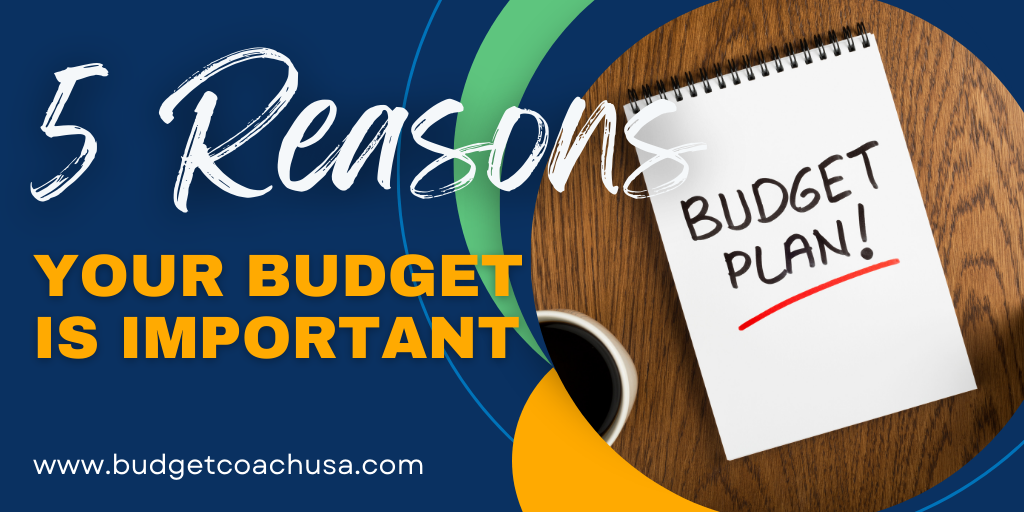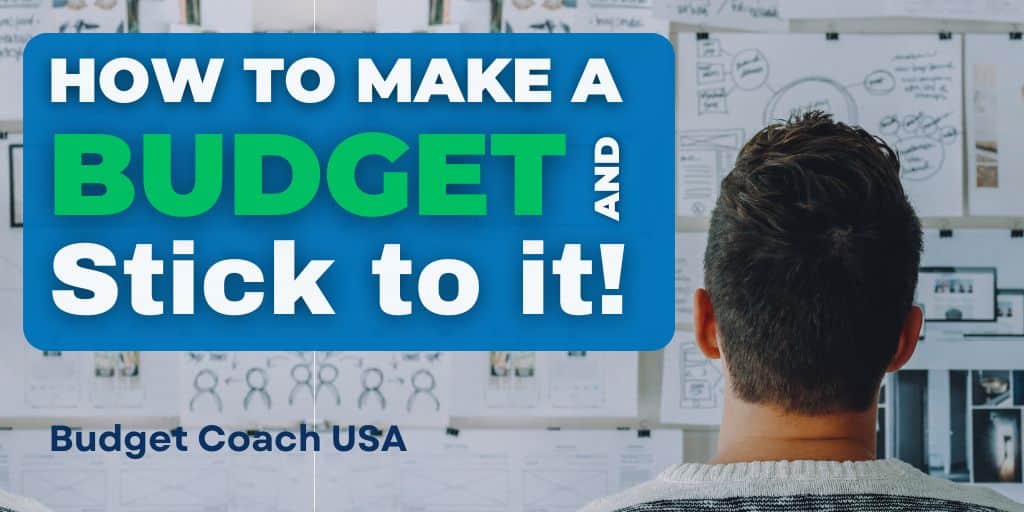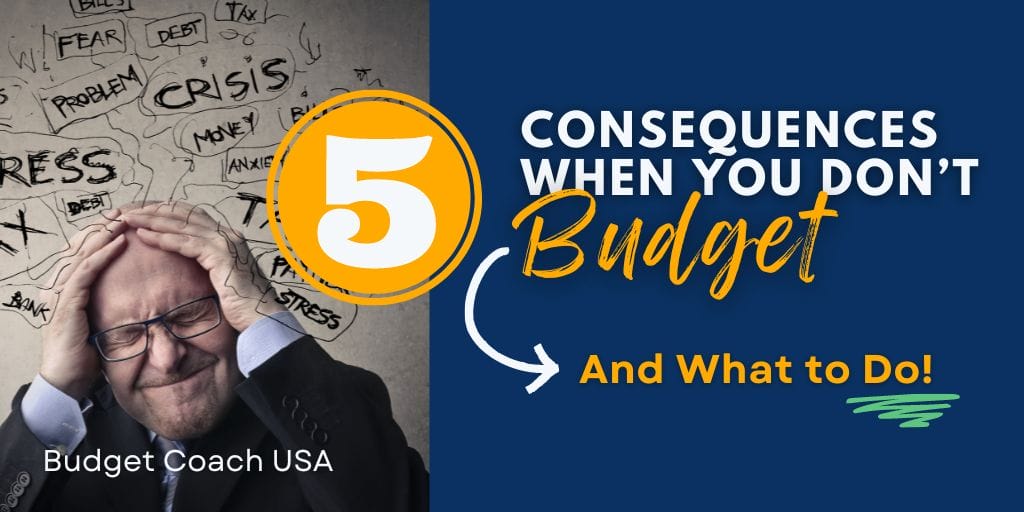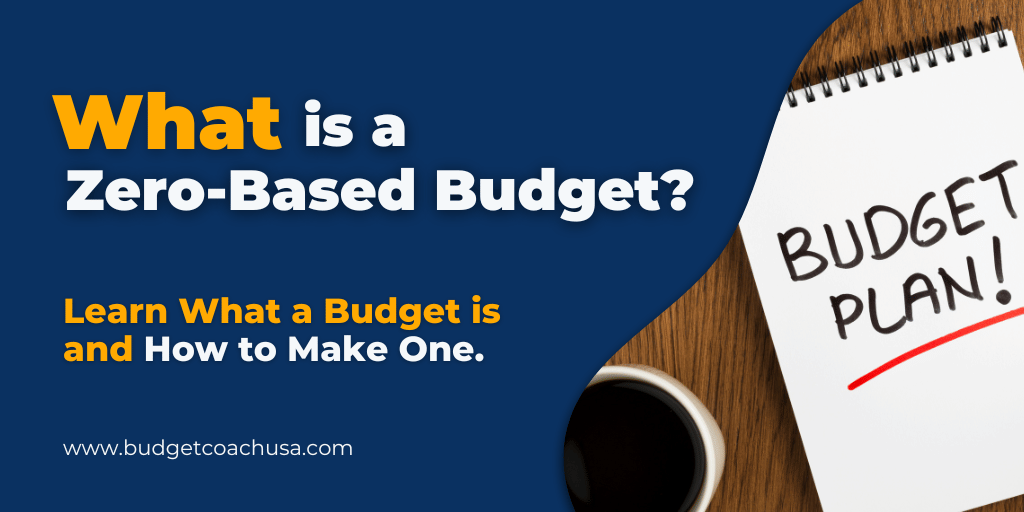In today’s world, having a budget is more important than ever. Whether you’re a recent college graduate starting your first job or a seasoned professional looking to make smarter financial decisions, a budget serves as the foundation for achieving your financial goals. It not only helps you track your income and expenses but also enables you to prioritize your spending and savings. In this article, we will explore five compelling reasons why having a budget is crucial for everyone’s financial well-being. From gaining control over your finances to planning for the future, understanding these key benefits will empower you to take charge of your money and pave the way toward financial success.
5 Reasons Your Budget is Important
1. A Budget Is The Accountability You Need
A zero-based budget is important because it forces accountability over how you are choosing to spend every single dollar. You may have tried in the past to write down how much you are going to spend in certain categories for a month, however, if the budget you are creating is only a loose collection of how much you plan to spend it misses a key element: You haven’t weighted your spending against your income and assigned every dollar of income to a job. Further, the dollars of income that are not assigned to a job are likely to walk away, or at minimum, they’ll be directed toward the wrong target. You know that you have assigned every dollar a job when your income minus your expenses equals zero. Zero does not mean that you have no money left, it means that you have given every dollar (even the extra ones) a job to do. There is a big difference. It means that all of the money you earned is pointed toward a goal such as saving, investing, or paying down debt. When you have assigned a job to every dollar of income, you have forced yourself to put those dollars where you have pre-determined they should go. This is accountability.
2. A Budget Maximizes Every Dollar You Earn
Your zero-based budget is important because it maximizes every dollar you spend and earn through advanced planning and disciplined spending. A zero-based budget accounts for all income and assigns it a job. When all income is assigned to a job, on purpose, it assures you that you are maximizing its potential.
Many people like to have a “buffer” in their budget for “discretionary” spending. They feel if they assign every dollar of income to an expense category they won’t have any money left for unexpected wants or needs. We encourage you to plan for all spending by budgeting specifically for all expenses. A buffer is only needed when you don’t have full control. When you aim generically for a few leftover dollars at the end of the month as a buffer what you have really done is admit that you don’t have control over where every dollar is being spent and you need a buffer “just in case”. A zero-based budget encourages you to discover all of the expenses in your life and plan for them in advance.
No dollar left behind! Assing them all to a job and make them behave. In doing so, you will maximize their value and usage.

3. Your Budget Gives You Permission to Spend
Have you ever bought that thing you wanted and felt guilty afterward? Of course, you have. We all have. But when you use a zero-based budget for your personal finances you can plan for the thing you want in advance and when you buy it…no guilt! That is because the expense fit within your pre-planned, on-purpose, budget. When you use a zero-based budget to organize your income and control your spending you have the ability to spend on budgeted items guilt free.
4. It Budget Removes Financial Anxiety
Following a zero-based budget is important because it removes and replaces the unknowns with knowns. When the unknowns are reduced the anxiety level reduces as well. Most people experience anxiety around money because they don’t really know where their money is going or if they’ll have enough when they need it. What if I told you that you could know with almost certainty that when your car breaks down, you’ll have enough money to pay for the repairs in cash? Or that if your home’s roof springs a leak, you can handle the new roof without using credit? I bet your anxiety level would be reduced. A well-planned and executed zero-based budget allows you to know where your money is, where it is going, and how much you need to save to keep “Murphy’s law” from your front door.
5. A Budget Helps You Win With Money
Losing sucks. And yet without a budget that is the path you are on. Money leaks and opportunities are wasted. Winning with money is a marathon, not a sprint. It takes intentional planning over time. In other words, it takes a budget. It isn’t always easy, but it is worth it. Don’t just take my word for it, listen to what Colonel Sanders (of KFC fame) had to say about doing things the easy way.
“The easy way is efficacious and speedy, the hard way arduous and long. But, as the clock ticks, the easy way becomes harder and the hard way becomes easier. And as the calendar records the years, it becomes increasingly evident that the easy way rests hazardously upon shifting sands, whereas the hard way builds solidly a foundation of confidence that cannot be swept away.”
–Colonel Sanders
Winning with money takes organization and planning and that is exactly what a budget does. It plans and organizes your money so you can win!
How to Budget
1. Acknowledge and write down all of your monthly income.
Write down your total expected income on the top left-hand corner of our free zero-based budgeting pdf.
2. Next, let’s list out every category that you spend money on during any given month.
Consider every category you might need to record your spending for the month. Keep it simple, especially if you are new to budgeting. Our free zero-based budgeting template can help.
3. Now let’s enter what we expect to spend in each category for the month.
Don’t worry if you are feeling a little underwater at this point. If you’ve not been doing a budget it will take several months to iron things out. That is okay. The most important step is to get started. So go ahead and enter the amount you plan to spend in each category. Don’t forget to budget for replacement items like tires, real estate taxes, etc…
4. Next step; Fine-tune it.
The moment of truth. Add up your expenses and let’s compare them to your income. If you have more expenses than income, you’ll need to reduce expenses until your income equals your expenses. If you don’t you are just racking up debt and we don’t want that. If you have more income than you do expenses Kudos! But go ahead and assign those leftover dollars to a job. For instance, take the extra income and use it to pay down debt.
Our goal here is to give every dollar a job so we want a big fat “0” dollars left unassigned. Every dollar of income is allocated to a budget category so that no money is left unassigned at the end of the month. Assign extra money to a job like saving for a car or paying off debt. That way every dollar you earn has a purpose. This is called zero-based budgeting.
5. Track your spending.
Now track your spending each day. The best way to budget is to record your spending at the moment you spend or at the end of each day. That way you don’t miss anything. Learn how to say “no” to your wants before you overspend in a category. Otherwise, you are at risk of racking up debt and we don’t want that.
6. Learn, Adjust, and Improve
It will take a few months to get your budget ironed out. So don’t give up the first month if it feels a little confusing. Learn as you go and if you make adjustments as learn, you’ll have a clean and reliable budget plan in just a few months.







